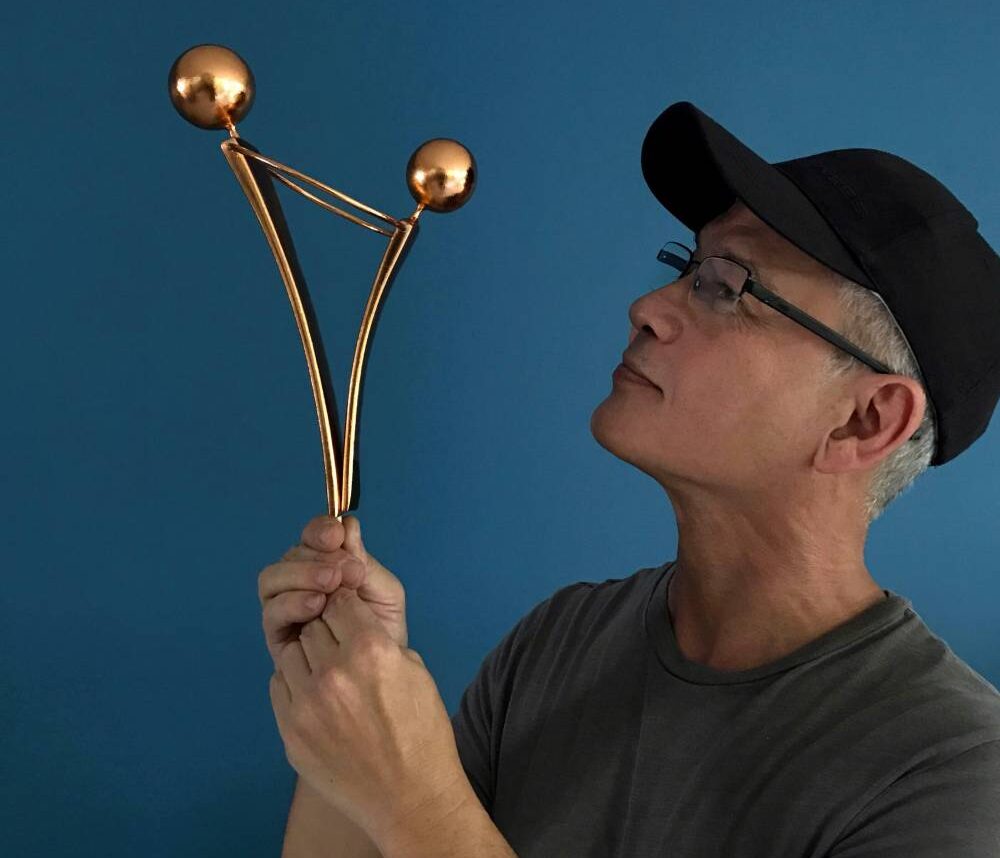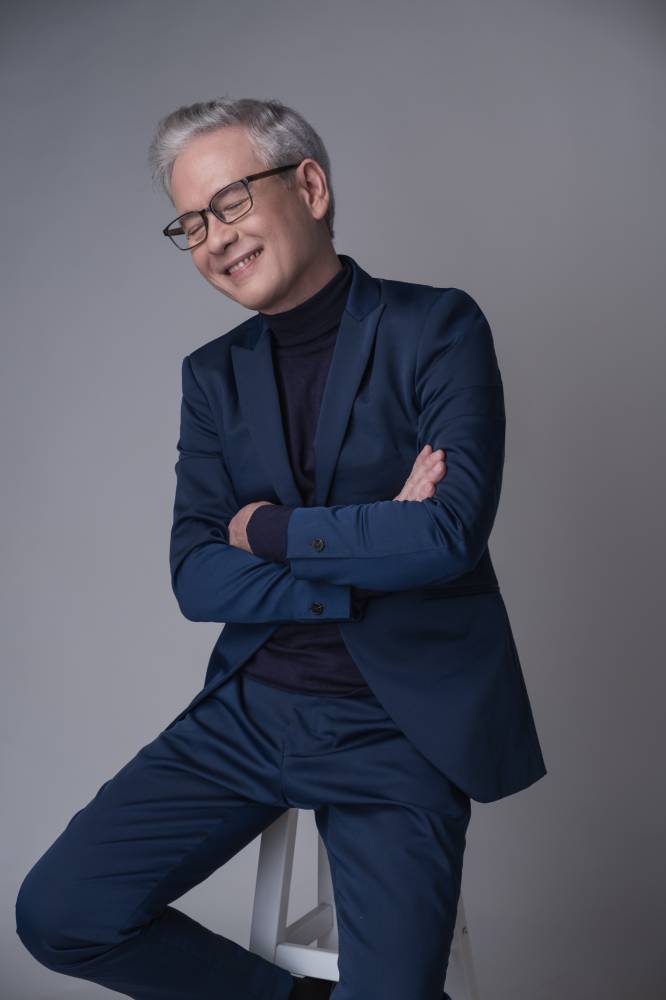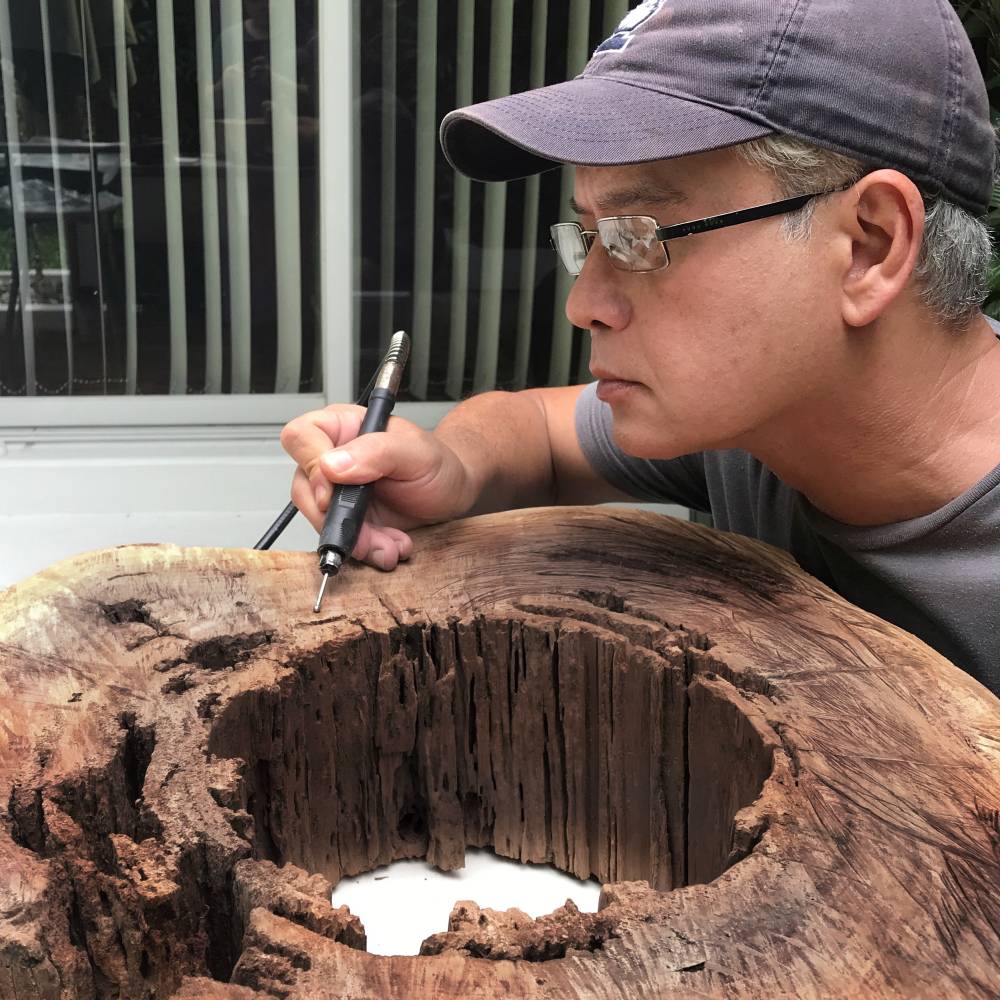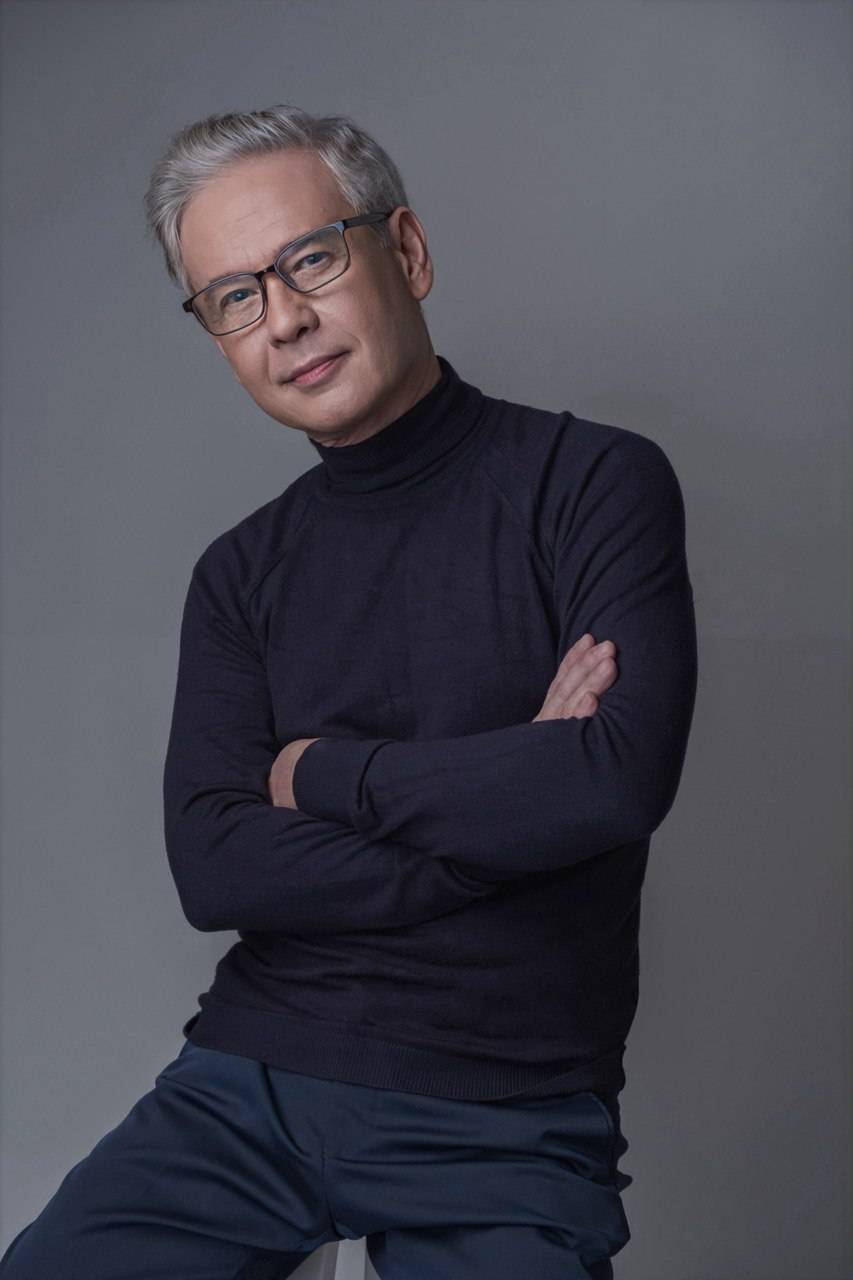Raymond Lauchengco on art, aging, and why he didn’t just get lucky

If life were a highway, as the Tom Cochrane hit suggests, Raymond Lauchengco’s path would be one rife with “creative detours.” And in March 2020, at the onset of the pandemic, things took yet another unexpected turn.
His father, Ramon, died of a stroke. His younger sister, Vicky, had a medical emergency, which, for a time, left “half her body paralyzed.” His wife, Mia, fell ill from what they could only suspect as COVID-19. And when the country was put on lockdown, his busy calendar was wiped out: projects, shows and bookings all gone in the blink of an eye.
“I was very stressed because I’m the family’s provider,” he told Lifestyle. “How would I take care of my wife and our kids (Natalie, 17, and Davey, 14)? That was the first question that came to mind. And it nagged me for quite a while.”
It was as if he was trapped in a valveless pressure cooker and left to stew in his own mounting anxieties. He worried that he could, and would, explode at any given minute.
“But for some reason, while I was going through all that tension, something from within me said, ‘Go outside. Create something,’” he recalled.

Before he knew it, Lauchengco had a hammer, a chisel and a rusty saw in his hands, tinkering away and creating functional art out of random items most people would readily dismiss as trash—glass bottles, wood stumps, metal scraps and concrete rubble.
Finding an open hardware store was next to impossible back then. So, when his supplies ran out, he had to be creative in finding possible alternatives. In place of sandpaper, for instance, he made do with leaves of the is-is plant as natural substitute.
“I would just scour our garden for whatever I could get my hands on and roam around our village like a junk collector,” he said, laughing. “And then, I would chisel, hammer and polish all those things until they become something else … something beautiful.”
Self-taught
The next few years saw him churning out stylized furniture pieces and home accents. He turned slabs of wood into candleholders. He molded resin into minimalist figures and sculptures. Tree branches and ostrich eggshells were reincarnated as light fixtures. He restored broken ceramics by way of kintsugi, the Japanese art of mending pottery with a cocktail of lacquer and melted precious metals.
Lauchengco is self-taught. He didn’t take lessons or any formal training. He didn’t even realize until recently that he had it in him to make art. But looking back at his childhood, it suddenly occurred to him that his grandfather was skilled at carpentry.

“He could build just about everything. I enjoyed watching and assisting him in his workshop,” he added. “Maybe that seeped into my system and came out only during the pandemic.”
By his estimate, he must have completed close to 120 pieces during the pandemic. Some of them made their way to his online exhibits, which helped raise money for displaced colleagues in entertainment. “I didn’t want to sell them at first because I was shy. But the idea of donating part of the proceeds inspired me,” he said.
Lauchengco got his start in musical theater. He rose to fame as a 1980s matinee idol, thanks to the iconic piece of pop culture that is “Bagets.” Through his signature hits, like “Farewell,” he achieved longevity as a music artist.
Much later in his career, he dabbled in photography and directing—pursuits that he described as “life-enriching.”
Finding peace
But it was in art, he said, that he found peace.
“Whenever I finished a piece, I would just look at it. Or hold it if it’s small enough. And all the while, I would be in total disbelief. ‘Wow, I did this with my own hands! Who would have known?’ And it gave me peace, joy and fulfillment at a trying period in our lives,” he said.
While he believes he emerged a better person from all the creative detours he took throughout his career, what Lauchengco would ultimately realize is that all roads inevitably lead back to his first love, music.
“I feel blessed that I was able to discover something new, that I fulfilled my goal of becoming an artist who works with his hands. I have other dreams that I was also able to satisfy. I shot magazine and album covers. I directed numerous events. But now, I want to concentrate on singing while I have the voice,” he said.

On Nov. 23 at the The Theatre at Solaire, Lauchengco will mark his 40th year in show biz with a concert titled, “Just Got Lucky.” “I’m surprised with how my career turned out. I’m glad that many people still embrace me despite all the other endeavors I had busied myself with in the past,” said Lauchengco, who will be joined by special guest Bituin Escalante.
The upcoming show, directed by Waya Gallardo and with musical direction by Marvin Querido, is Lauchengco’s simple way of expressing his gratitude to everyone who has had his back. Yes, he owes most of his success to talent, grit, and hard work. But he concedes he wouldn’t be where he is right now if it weren’t for the people who gave him opportunities to prove himself.
There’s Sharon Cuneta, for instance, who introduced Lauchengco to Viva Entertainment and Vicor Records’ top executive “Boss Vic” del Rosario, who, in turn, gave the singer-actor the hits “Farewell,” “So It’s You,” “I Need You Back” and “Shadow of Time.”
“We all get blessings one way or another. Some may call it luck. But I do believe that it exists. An open door isn’t your own doing; it’s a gift. But nothing’s going to happen if you don’t make your way in. I would say that success is 10 to 20 percent luck. The rest is hard work,” he said.
Through his music and other well-loved songs from the 1980s, Lauchengco hopes to bring his fans back to that “magical era,” which he still yearns to relive every so often.
“Those were my teenage years. It’s one of life’s highlights for me,” he pointed out. “It’s a magical and fun time when you’re old enough to explore, but also young enough to make mistakes.”
Getting older
No amount of teenage nostalgia, however, will make him dye his hair again, he quipped. At 59, Lauchengco has come to embrace his full head of silver and grays and with it, the realities of aging.
“There’s nothing wrong about dyeing your hair. If it makes you happy, go for it. I just want to be the guy who says that it’s okay if you choose not to. Some people tell me that it makes me look older. But I’m like, ‘What’s wrong with getting older?’” he said.
If anything, aging is actually one of the things that he feels he “got lucky” with. After all, it’s a “privilege” that not everyone gets to have, much less enjoy.
“Life can be good at any stage, at every stage. I was the boy next door for the longest time. I know what it’s like to be young. Now, I can be something else, and it could be just as beautiful,” he said.
Tickets are available at TicketWorld and the Solaire box office.

















